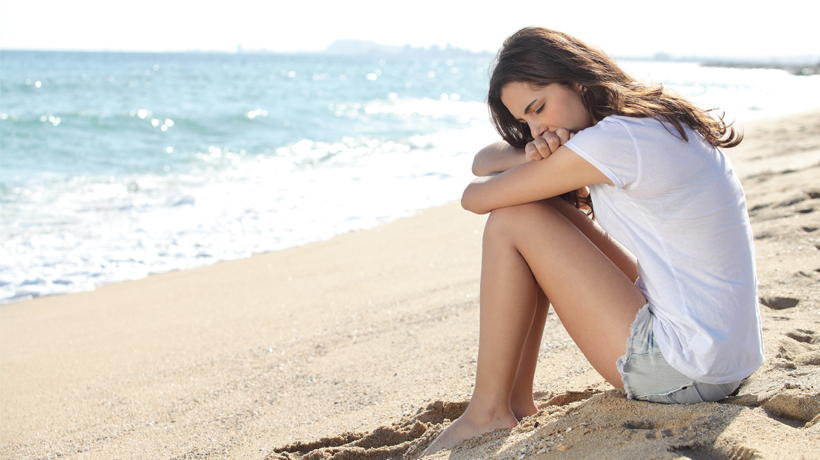Seemingly everyone has heard of the winter blues, the common name for a type of depression called seasonal affective disorder (SAD). But did you know there are summer blues, as well?
At a time when most people seem to have a mood as bright as the sunshine, other people struggle with summer SAD. In fact, contrary to popular belief, research shows the highest rates of suicide attempts are not during the colder months of the year but when the weather starts to get warmer. And about four out of five people who struggle with SAD are women, according to a review on the disorder published in the journal Progress in Neurology and Psychiatry.
Researchers are still determining what exactly causes summer SAD, but they’ve determined several physiological and sociological factors that can aggravate it.
Heat
When we’re kids, playing on the beach or even with the sprinkler in the front yard can make the summer heat fun. However, as adults, the overwhelming heat and humidity during some summer months can discourage people from doing anything that’s not parked in front of a fan or the air conditioner. That can limit the amount of time doing activities we enjoy as well as time spent outside, absorbing the important vitamin D that can help fight depression.
The heat can also affect the quality of sleep. Research shows falling asleep in a hot room can disrupt sleep patterns necessary for recharging the brain and body. Many people struggle with falling asleep in a hot room at all, as most people prefer a cooler temperature with a warm blanket.
Routine changes
Longer days of sunshine mean changes in a person’s routine. Many people wake up earlier and fall asleep later, meaning they may be getting less sleep. Plus, families with children often see changes, as well. With school being out for the summer, parents have added stressors to entertain their kids, plan vacations, and find childcare in the summer months. Changes in a woman’s routine and added anxiety can aggravate depression.
Money woes
While a well-timed vacation can be rejuvenating, preparing for one can sometimes be overwhelming. Saving money, planning time off from work, and adjusting to canceled flights or flat tires can add pressure to financial stress. Additional pressure to do summer-only events, like festivals, movie theaters, and beach retreats can cause worry. And if you decide to save money and skip these events, you might feel socially isolated from your social group who went without you.
Body image issues
After shedding layers of scarves and sweaters, most women feel uncomfortable in their summer wardrobe. Bikinis, shorts that ride up, and tank tops that show unflattering angles can make women too frustrated to want to step outside.
Recognizing that “funk” as SAD may be the first step in helping to treat it. While depression can affect everyone differently, experts recommend getting enough sleep, eating a balanced diet, exercising, and setting realistic expectations for your daily routine. Talk to your doctor about other options, such as psychotherapy or medication, as needed.
Sources:
https://onlinelibrary.wiley.com/doi/pdf/10.1002/pnp.173
https://insights.ovid.com/crossref?an=00001648-200201000-00017
https://www.cambridge.org/core/journals/the-british-journal-of-psychiatry/article/seasonal-and-weather-factors-in-parasuicide/E85F158C4E970882A76780F6CDBD5D94
https://www.ncbi.nlm.nih.gov/pmc/articles/PMC3315262/
https://www.tandfonline.com/doi/abs/10.1080/07420520701535795?journalCode=icbi20
https://www.webmd.com/depression/summer-depression#1



